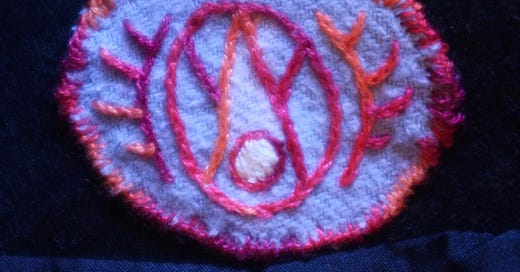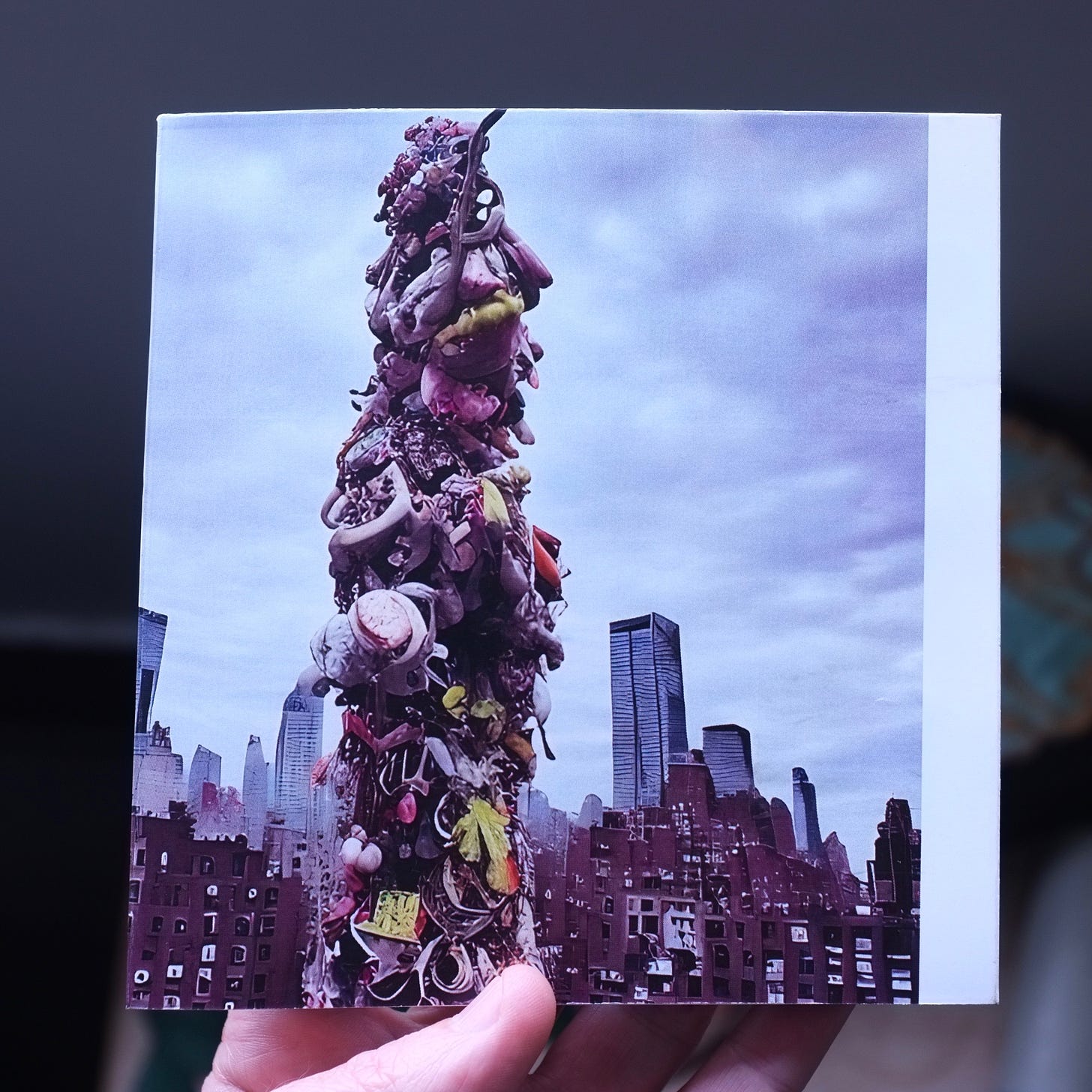Rubbish is free: it costs nothing. Its assigned monetary value ranges from almost nothing (Dump Shop); to nothing (things scavenged from bins or gutters, reclaimed recycling such as glass or cardboard); to less than nothing / negative value (i.e. being paid to tear down a shed and take away its constituent parts, or clear garden waste).
There is a strongly enforced correlation under capitalism between monetary value and social value. Therefore anything— or anyone— with less, no, or negative monetary value is also assigned correspondingly less social value / worth. However, being less valued / mattering less can also mean less pressure of expectation upon the material (person / plant / animal). Things (people / plants / animals) that are classified by majority-culture as rubbish / (trash / garbage) are therefore also granted a perverse kind of social freedom. Free = free.
Rubbish names a class of orphan-object, unowned. However, it is truly said that one person’s trash is another’s treasure. Value is in the eye of the beholder. A thing can have zero or little monetary value but retain a great deal of use-value: this principle applies to many things, including food, buildings, and land. Therefore the clever scavenger / bottom-feeder seeks out hidden beauty or usefulness. Learning discernment is a way to take advantage of incorrect assessments of true value (e.g. op-shop scores). The discerning eye is the fruit of experience; it can’t be bought.
A parallel value-paradox concerns usefulnesses that are only useful while they remain free, as in the Taoist parable of the massive, crookedly bent tree. It remains alive while its fellows are cut down and turned into straight timber. Useful in its uselessness as wood, it offers shade and shelter to animals and humans. (See also: any land or food resource used in common, such as community gardens.)
Consider that which is overlooked, discarded, thrown away, dropped, or lost. Crumbs fall from the table; to smaller life-forms each one is a meal. Precious metal and jewels fall into cracks and sewers. Plants drop seeds. Dead whales fall to the abyssal deep and become a decades-long ecosystem of sustenance.
One can also increase use-value by the skilful combination of considered-useless things that thereby become more interesting, beautiful, or valuable (e.g a skip-dived stir-fry; sewing cool second-hand buttons onto a gifted shirt; a tiny house made of salvaged timber). Ingenious artists and artisans can turn this kind of labour back into financial profit. (Neo-Dadaist Ushio Shinohara turns cardboard scavenged from the rubbish collections of New York into life-sized motorbike sculptures and sells them back to the rich.) Rubbish-art is also more free in the sense that low-cost materials allow low-risk experimentation; less precious = less pressure.
Rubbish— which I use because it’s my native vernacular term— and garbage are both newish words (early 15thC and late 16thC respectively). Trash is only slightly older (late 14thC). Is this because there was no such thing as rubbish in the olden days? We children of the Anthropocene turn and turn in the widening plastic gyre.
When I’m beach-combing I see that the rubbish of the past has become more beautiful through the ceaseless action of the sea. (Humans can simulate this sea-working by tool-use.) The rubbish of the past is also more beautiful than modern rubbish because the materials of the past were more elegant: wood, glass, ceramic, paper. (The aesthetic philosophy wabi-sabi refers to the beauty of simplicity and imperfection; wabi refers to the marks of the maker’s hand, sabi to the way time alters by wear— patina, damage.) Better rubbish; contrast the beauty-in-durability expressed throughout the aesthetic lifespan of these materials to the toxic, near-infinite dissolution of chemicals and micro-plastics.
In the immediate material world of most humans, though, there is very little that is entirely toxic or useless. (Roadkill, hung in a wire-mesh cage; flies lay eggs; maggots fall out and become food for chickens.)
The deeper point is that time ceaselessly acts upon matter, transforming it. Shit becomes compost becomes food, depending on time and treatment. It is not only a question of labour, but of personal responsibility (in the matter of compost toilets, responsibility for the waste of one’s own body). This work also necessitates an ideological reclassification of shit: taboo filth becomes fertile fuel.
Another way to think about these processes of composting / transformation: by creating conditions hospitable to wild bacteria, yeasts, insects etc., we tap into abundant natural energy-sources that are unowned and free. (See also: sauerkraut, wild-yeast baking and brewing.)
More fundamentally, the transmogrification-through-digestion of something valueless into something valuable is analogous to the process of unlearning that we humans must undergo in order to see true value clearly. What we work on also works on us. Through the alchemy of creative labour, we continually compost ourselves. We must undertake processes of ideological ferment that invite the wild into symbiosis. Make your body a garden and your mind a workshop! Become an agent of transformation!
Rosie Whinray ~ Wizard of Wellington
13 / 11 / 2023 ~ New Moon in Scorpio1
I wrote this for Garbagefest Wellington. Garbagefest is the brainspawn of Kalan Sherrard AKA Enormousface.
The brief: “We are seeking short form submissions for a forthcoming publication about Garbage — especially multilingual highlighting theoretical texts, poems, diagrams, literary and experimental works both imagistic and textual.
We focus on radical reimaginings of Trash Relationships in the expanded field. The compilation generally takes a position of animism and abject personification, is disinterested in neo/liberal recycling, and aims to re-consider or worship rather than vilify Garbage.
Questions like ‘What is Garbage?’, ‘Where does it come from and why?’ and ‘How can we think about trash more and differently?’ can be good bellwethers.”
This manifesto was published in a zine / book by 5ever:
I also wrote a series of haiku:
It was stimulating to write to a brief, and to step sideways into variant forms. It’s a buzz to see my words printed on a page. It gives me a different feeling than the books I make myself— handwritten journals— or the words I type here, on the glowing screen. O world of matter!
Scorpio rules filth, taboo, etc., and New Moon is a moment for newness, looking ahead, planting seeds etc., so this seemed an apt resonance.








...marmite poem is excellent...
I like this...
This Here I document my time living on the streets of wellington... off throwaways...
https://obsidianblackbird.substack.com/p/the-gutter-boss-rises-75a